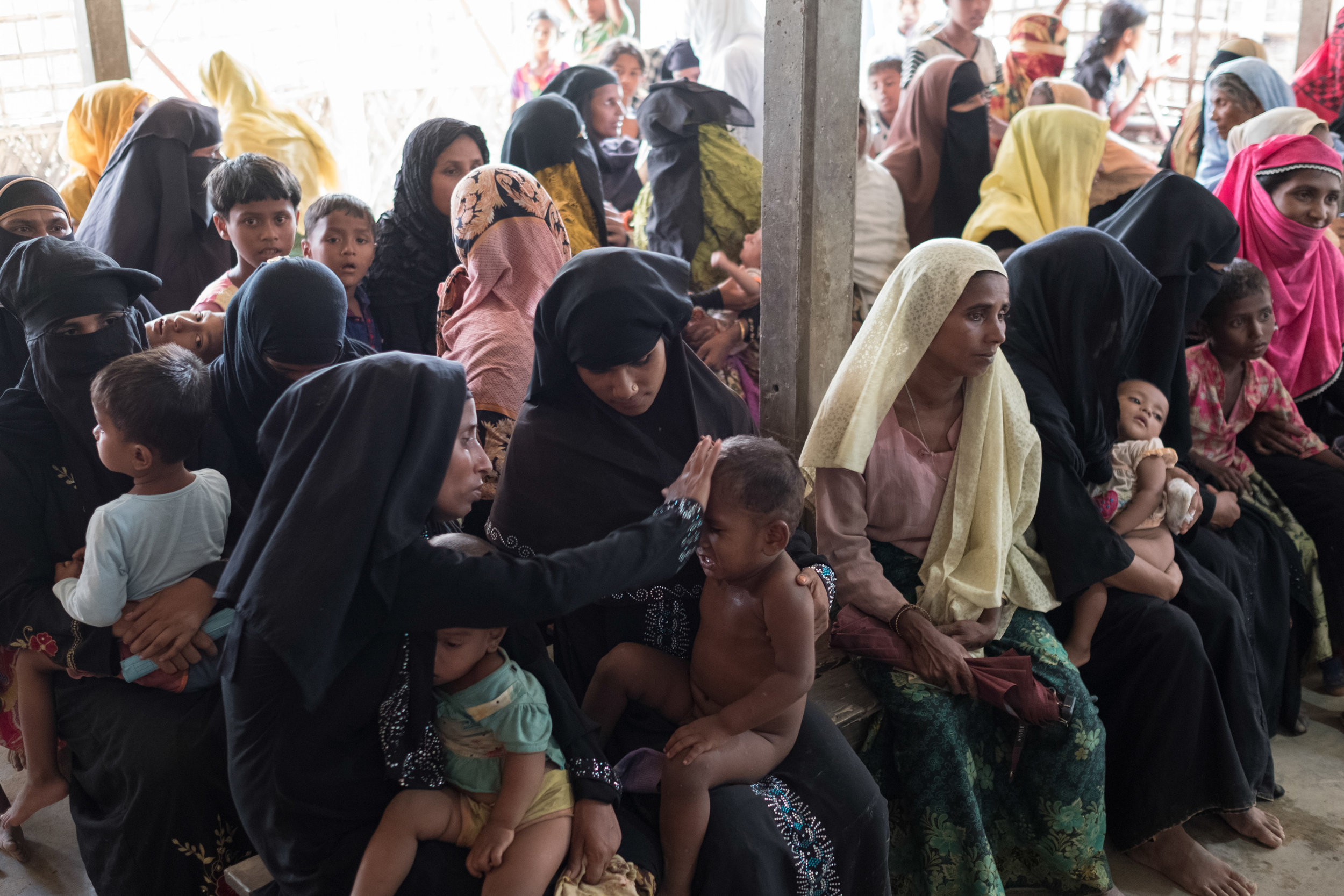Cover photo: Antonio Faccilongo/MSF
WHO WILL HELP THE ROHINGYA?
By Carolyn Oei, 15 November 2017
We are all broken. But the only reason why the world hasn’t imploded is that, miraculously, some people are less broken than others.
The Rohingya, an ethnic minority that lives primarily in Rakhine State on the West coast of Myanmar, have suffered persecution for generations. The severity of the persecution gained more international visibility in 2013 but things don’t seem to have improved since.
Politics aside, humanitarian groups – big and small – are doing what they can to help the countless Rohingya refugees who have fled across the border to Bangladesh. According to information provided by international humanitarian medical aid organisation, Médecins Sans Frontières (MSF), more than half a million people have fled to Bangladesh since 25 August this year.
Matching the influx of people crossing over the border from Myanmar since that date, MSF has treated more than 30,000 patients in the Cox’s Bazar area, effectively five times the number of people who sought treatment at MSF facilities during the same period last year. Most of these patients have respiratory tract infections and diarrheal diseases: directly related to the poor hygiene conditions in the informal settlements.
Below is an account written by Dr Konstantin Hanke who was Medical Activities Manager at the MSF medical facility in Kutupalong, Bangladesh. Hanke worked in Kutupalong from early January until 2 October:
“I joined MSF’s Bangladesh mission in January, when Rohingya refugees were still fleeing the last outbreak of violence in Rakhine State that started in October 2016. The clinic was consistently busy, with around 350 patients a day in the outpatient department and around 200 admitted patients a month. The population had run out of money and their health deteriorated. We saw more and more severe malnutrition, particularly in children under five years old. At one point we had 20 patients a day with severe measles in our isolation tent."
Photo: Antonio Faccilongo/MSF
Photos: Antonio Faccilongo/MSF
"We received a lot of trauma, and lots of accidents involving children, tetanus, rabies, and other cases I wasn’t used to seeing at home. At the facility we rarely see a newborn that weighs more than 2,500 grams. The mothers are usually malnourished, so the babies don’t have a very good start. On 25 August, when we learnt of the deteriorating situation in Rakhine, we knew we might have to prepare for a new influx of refugees. That night, the first fresh wounded arrived, and a situation that was already bad became much worse. Initially we mostly received young male adults, but in the following days we saw women and children as well. We saw patients with gunshot wounds and burns, and people with trauma and severe injuries who had somehow managed to cross the border.
Then the fresh wounds stopped and we started seeing patients who were seriously injured but had somehow managed to bring themselves to Bangladesh. It was really striking to see how they had made it from Myanmar to us. People arrived in a horrific state. Some said they had been trapped in houses that were set on fire. We treated unaccompanied children who had lost their families. One tiny neo-natal baby was brought in by a woman who had found it in the grass at the border. She’s now caring for the baby in addition to her own children. We treated a young girl with a head wound; an hour later her mother was admitted with severe burns. They said they were the only survivors from their family. The girl was always bringing her mother food and helping her eat. We’re providing play sessions for the child, counselling sessions, a caretaker to help with daily needs, and treating the mother’s burns.
We’re also giving them supplementary feeding so they are in a better overall state to heal, and they are steadily improving.
People have lost everything. Whole families have walked for days to reach Bangladesh. They have very few options. The poor conditions that most Rohingyas live in have a direct impact on their health. At one point, we received 13 people who had been bitten by a rabid dog that had run through the settlement. There’s no end to their suffering. When you are sitting at home and it starts raining heavily, it’s hard knowing they are trying to sleep outside under the rain. I don’t even know if it’s worse when it’s raining or when it’s burning hot and they have no clean water. It’s not the only conflict in the world, but seeing this with your own eyes and then seeing what is considered important back home is very frustrating.
The number of Rohingya who have arrived in the past five weeks is over 515,000 now: more or less the same size as the population of Nuremburg. That might seem like an abstract number, but as a doctor here, you see what that actually means. People are in need of profound help. A tiny bit more bad luck and we’ll have an epidemic on our hands.
Comprehensive vaccination campaigns need to be started and there is an urgent need for latrines and fresh water supplies. Things were difficult enough for the people who arrived last year, but now with so many new arrivals, it’s a catastrophe.”
Photo: Antonio Faccilongo/MSF






